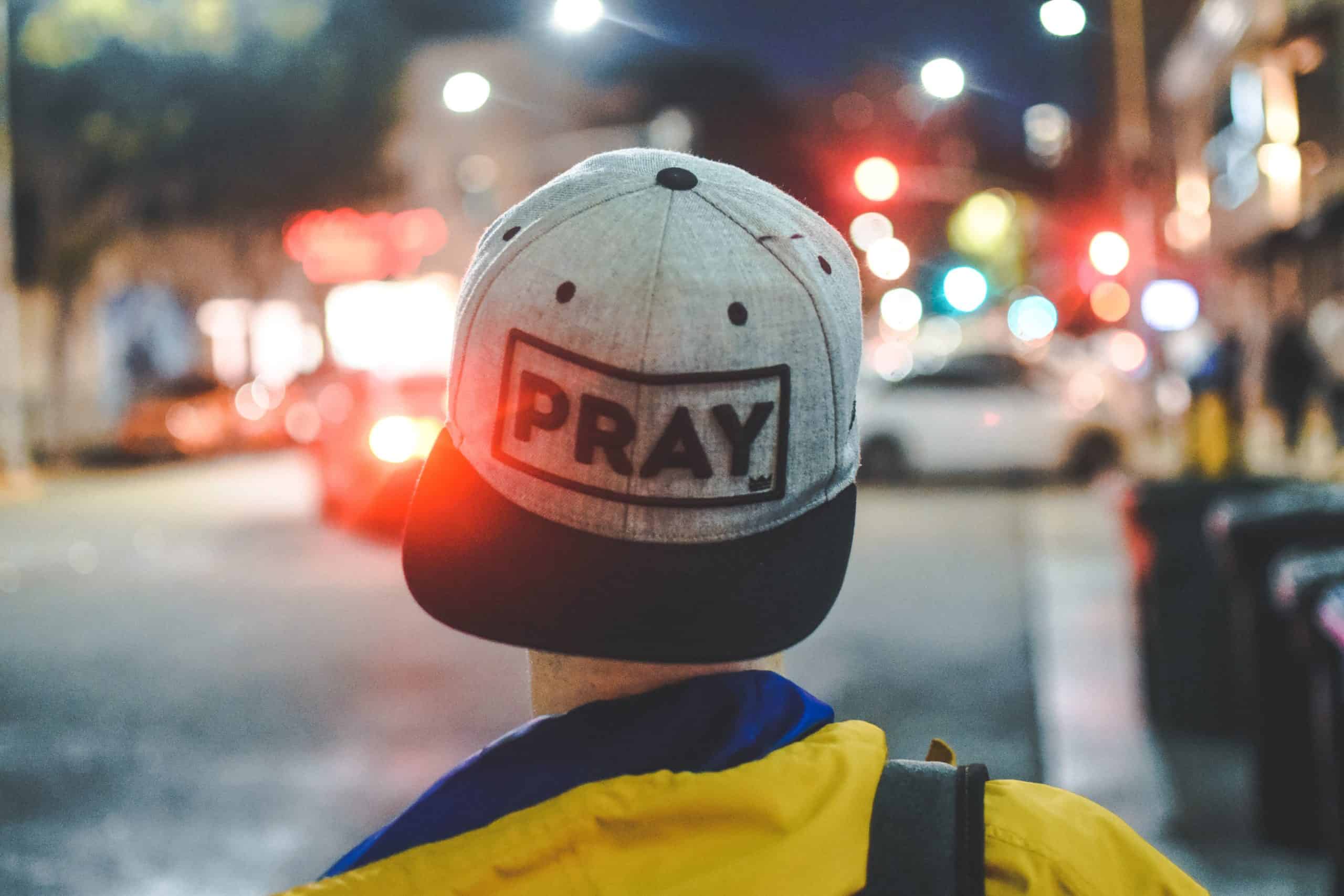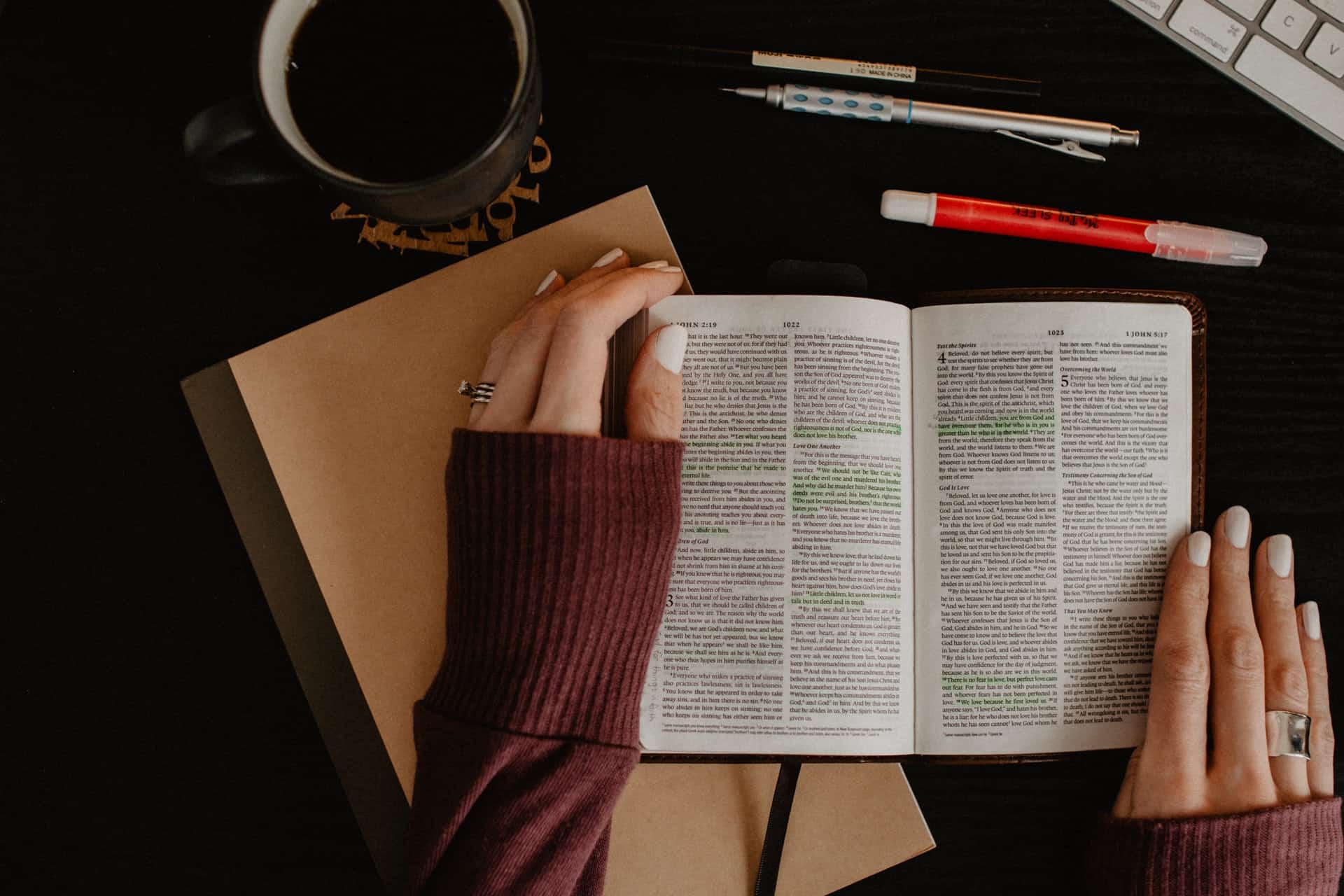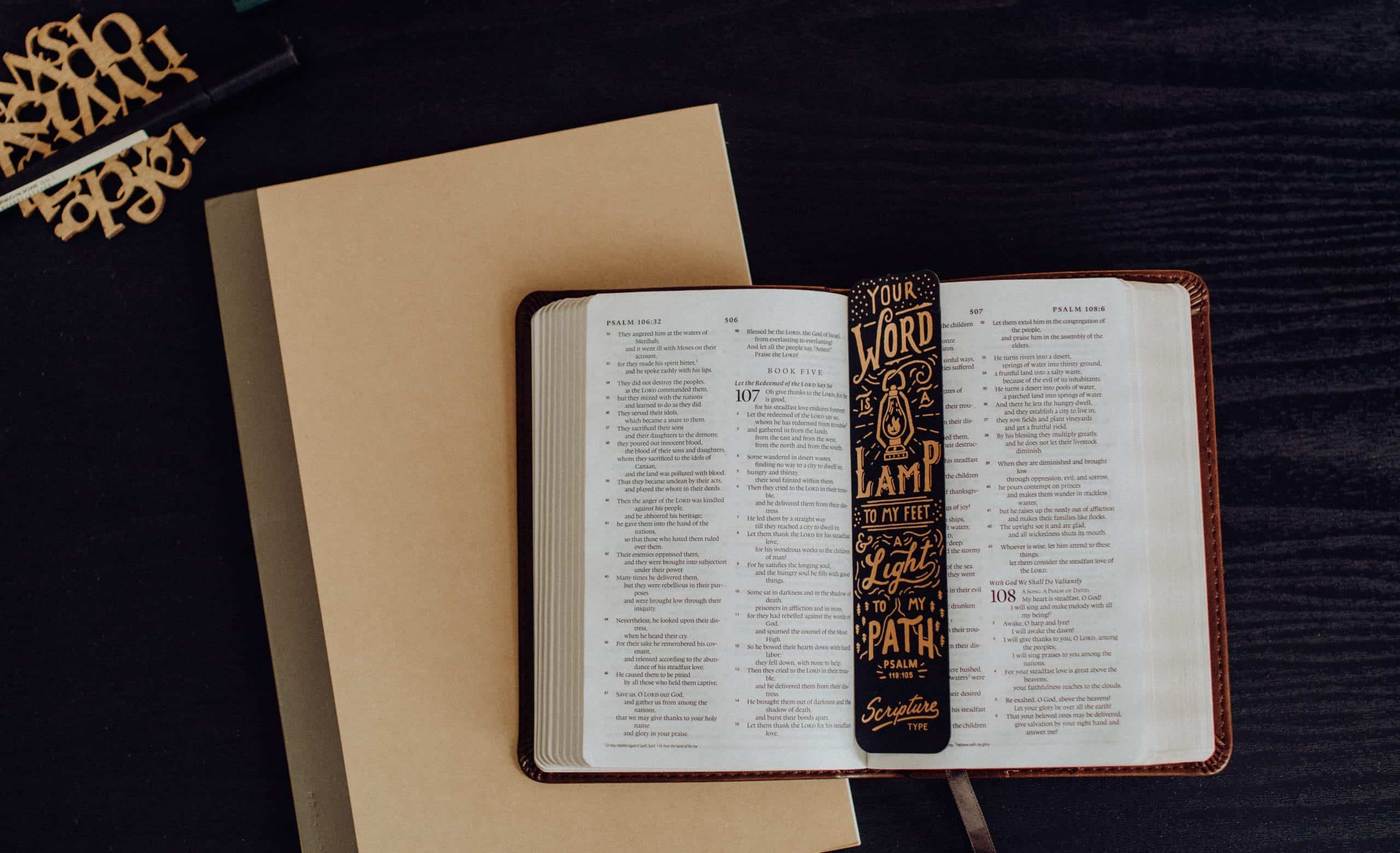The psalms provide us with an extraordinary example of prayer. David cries out to God in despair, in anger, in hope and [near] hopelessness, in joy and thankfulness, in fear and danger.
As we settle into self-isolation and physical distancing as a result of the global COVID-19 pandemic, as fear and anxiety over the future plague us, I think that learning to pray like David will be immeasurably helpful.
David offers us an example of crying out to God in all circumstances of our lives, of praising God for his faithfulness and crying out in despair.
Psalm 44 speaks perfectly into your fears and our anxiety today:Awake, Lord! Why do you sleep?
Rouse yourself! Do not reject us forever.
Why do you hide your face and forget our misery and oppression?We are brought down to the dust;
our bodies cling to the ground.
Rise up and help us;
rescue us because of your unfailing love.
Lament is a common theme in the psalms.
And yet, lament is not what I want to focus on today. Today, I want to tell a story of thanksgiving, and how praising God as we walk through the darkest valleys can strengthen us for what is to come.
Thanksgiving Amidst Pandemic
This morning, I wrote a thanksgiving psalm. As we are entering our third week of self-isolation and physical distancing, our third week of closed schools and churches, of restricted movement and increasing fear, this seems like a funny thing to write: a psalm of thanksgiving.
Honestly, we are fairly comfortable right now, in Canada. We are seeing more COVID-19 cases, but our rates of infection and the death toll is still fairly low. We are cautiously optimistic that we are maybe flattening the curve and that, God-willing, we will maybe not overwhelm the health care system.
Because, of course, that is our only chance of not seeing loss and suffering on such a devastating scale as other countries are seeing right now.
But we know that it is coming. We know that it will get worse. We know that this will spread, that we ourselves may get sick, that almost certainly some people that we know and love will get sick. Possibly critically so.
And yet, lament is not our only response.
Lament will be coming, I am sure. Suffering and loss and ashes-and-sack-cloth kind of lament.
And so, I pray, Strengthen my belief, Lord. Shore up me heart. I know that worse is coming.
But I also know that we are called to give thanks in all circumstances (1 Thessalonians 5:18).
David insists that we “Give thanks to the Lord, for he is good; his love endures forever” (Psalm 107:1).
He encourages us to “Let the redeemed of the Lord tell their story – those he redeemed from the hand of the foe” (Psalm 107:2).

We might be a little bit suspicious of some of these verses right now. How does God’s love endure through a global pandemic? Through 10,000 lost lives in Italy alone and massive arenas turned into morgues?
Where is God in the midst of this?
And the answer, I think, is in the garden of Gethsemane.
In The World’s Last Night: And Other Essays, C.S. Lewis writes, “In Gethsemane the holiest of all petitioners prayed three times that a certain cup might pass from Him. It did not.”
And in Letters to Malcolm: “For most of us the prayer in Gethsemane is the only model. Removing mountains can wait.”
Lament is our Gethsemane: Lord, take this cup from me. Rescue me. Remove this suffering. This is our “Help! Help!” prayer.
And yet, God does not always remove suffering. Gethsemane should cause us to pause. God himself, when he entered human nature in order to redeem it, did not let the cup of suffering pass even from himself. He did not remove it. He entered into it.
For whatever reason… We could talk endlessly about free will and individual choice and compelled love and a broken world… we have a God who doesn’t erase suffering but who enters into the depths of it with us.
And yet, this is not our only model. Christ himself gives us both models: that of lament and that of thanksgiving.
During the last supper, before his betrayal and his arrest and his death on the cross, Jesus gave thanks.
In Luke 22:14-19, we read:
When the hour came, Jesus and his apostles reclined at the table. And he said to them, “I have eagerly desired to eat this Passover with you before I suffer. For I tell you, I will not eat it again until it finds fulfilment in the kingdom of God.”
After taking the cup, he gave thanks and said, “Take this and divide it among you. For I tell you I will not drink again from the fruit of the vine until the kingdom of God comes.”
And then he took bread, gave thanks and broke it, and gave it to them, saying, “This is my body given for you; do this in remembrance of me.”
I am somewhat shocked and, honestly, convicted by this passage. Jesus knows that his death is coming. He sees the suffering on the horizon. He will pray so fervently to have it removed that he literally sweats blood.
And yet, before he tells the disciples of this coming fate, he gives thanks.
Give thanks in all circumstances.

This brings us back to Psalm 107: let the redeemed tell their story.
I think that this is what makes thanksgiving psalms so powerful: they remind us of our story. They remind of us places in our lives where God was faithful. Where he answered prayer. Where he removed suffering. Where he didn’t remove suffering but he walked patiently with us through it.
I can name countless instances in my own life:
- the brain tumor that didn’t happen in one of my twins,
- the mysterious vision problem that resolved in steps – part of it miraculously overnight, the rest of it with glasses in the following weeks,
- the dissertation that I swear was finished by God himself,
- the introduction to youth ministry that I never would have chosen on my own,
- God ‘sucking up’ my 4-year-old’s nightmares,
- job prospects opened after pending job-loss,
- God walking me through not one but two miscarriages,
- people placed like angels in my life just when and where I needed them.
God has answered so many prayers in my life. Some he has answered in ways that I would have wanted – suffering removed, doors opened…. Some he has answered by simply taking my hand and walking with me through the darkest time.
Remembering those times in our lives where God has proven sovereign – where he has provided us with everything that we need, where he has rescued us in times of crisis or descended with us into the depths of despair only to gently pull us back out again – is crucial to walking bravely into whatever the future holds for us.
Jesus knew this.
Joshua knew this. (He built an altar of stones after God parted the sea, allowing the Israelites to escape their pursuers, so that future generations would remember.)
Elijah knew this. (He built the altar of stones where he called down fire from heaven with twelve stones, the same as Joshua and his altar after God parted the sea.)
David knew this. He gave thanks in all circumstances. He compelled us to remember the story of our redemption – of our redemption from sin and death, of our continual redemption here and now, of the constant rescue mission of our daily lives.
Even in David’s psalms of lament, he insists on his trust in God. He ends in blessing and praise.

And so, I would like to challenge you – any one of you who finds yourself reading this reflection – to remember your own story.
Give thanks to God for the times that he has pulled through for you. Give thanks for the answered prayers. Remember them. They will be more and more important as we move through these coming days.
Like Joshua and Elijah, build your altar with the stones of answered prayers. Hold them in your hands as precious treasures.
Heaven knows, my words are not poetry. They pale in comparison to the glory of God. They hobble along, limping towards the promise of salvation. And yet, it is appropriate, I think, to offer God our broken, limping hymns, our poems that only scratch the surface of a depth that is fulfilled only in God himself and our relationship with him.
And so, I pray:I rejoice at your faithfulness, God.
You protect and shelter us. You calm storms.
Chaos swirls around me, but Christ is my rock. You, God, have carried me through danger and loss and suffering before. You have answered prayers and you have walked with me through dark valleys.
You have promised me provision, renewal, and resurrection.
Whom, Lord, shall I fear?
Though sickness and suffering and uncertainty are at our doorstep, I place my trust in you, God.
Surely you will walk with us through uncertainty, through income loss and economic downturns.
You provide for the birds and the lilies in the field.
How much more for your children?
I trust that you will walk with us through sickness and even death. For nothing – neither unemployment, nor debt, nor economic uncertainty, not scarcity, nor sickness, nor death – can separate us from your love.
Strengthen my belief, Lord. Shore up my heart.
Thought chaos swirls around me, help me to rest in you.
And I shall sing your praises. I shall praise you in all circumstances.
Thank you, Lord, for your faithfulness.
A quick tutorial on how to write a thanksgiving psalm:
- Open with praise.
- Recall your own experience – answered prayer, pleas for help and God’s intervention.
- Describe your experience now – your current situation, the problem or challenge; express your trust in God to pull your through.
- Acknowledge God’s help. End in praise.
[Psalm 21 is a great model.]
